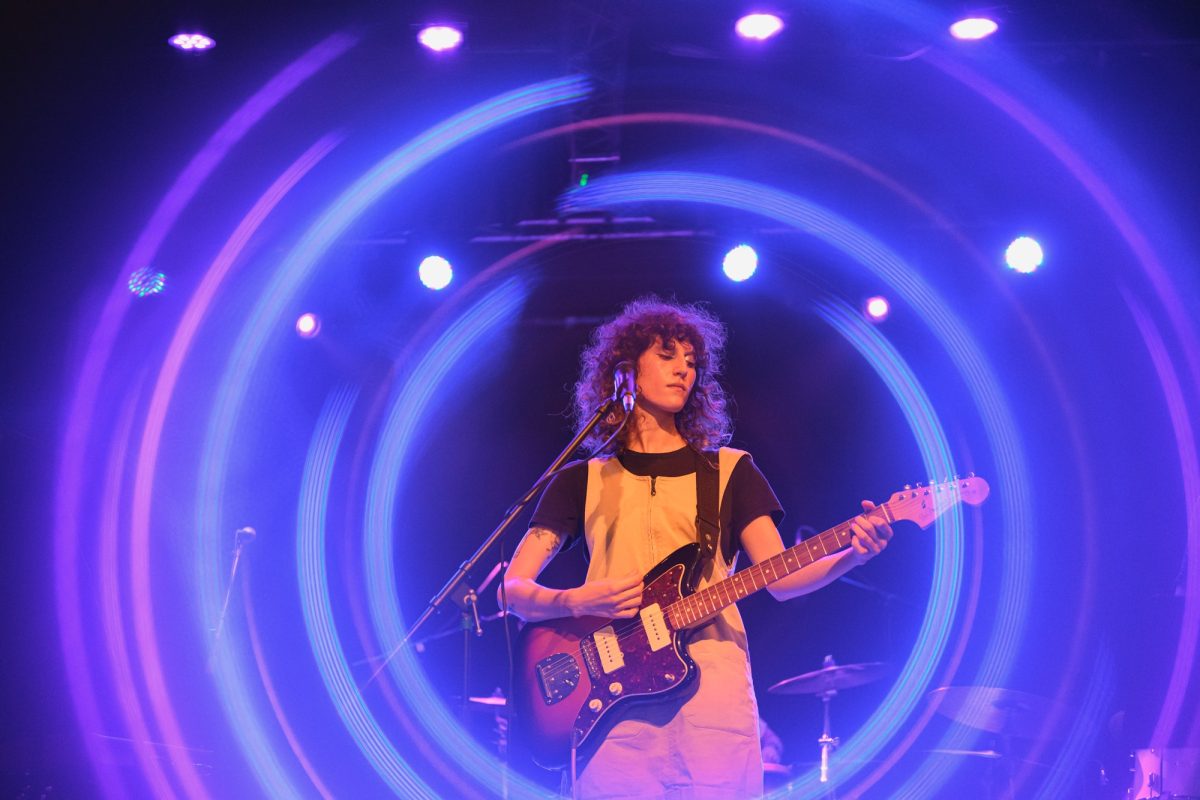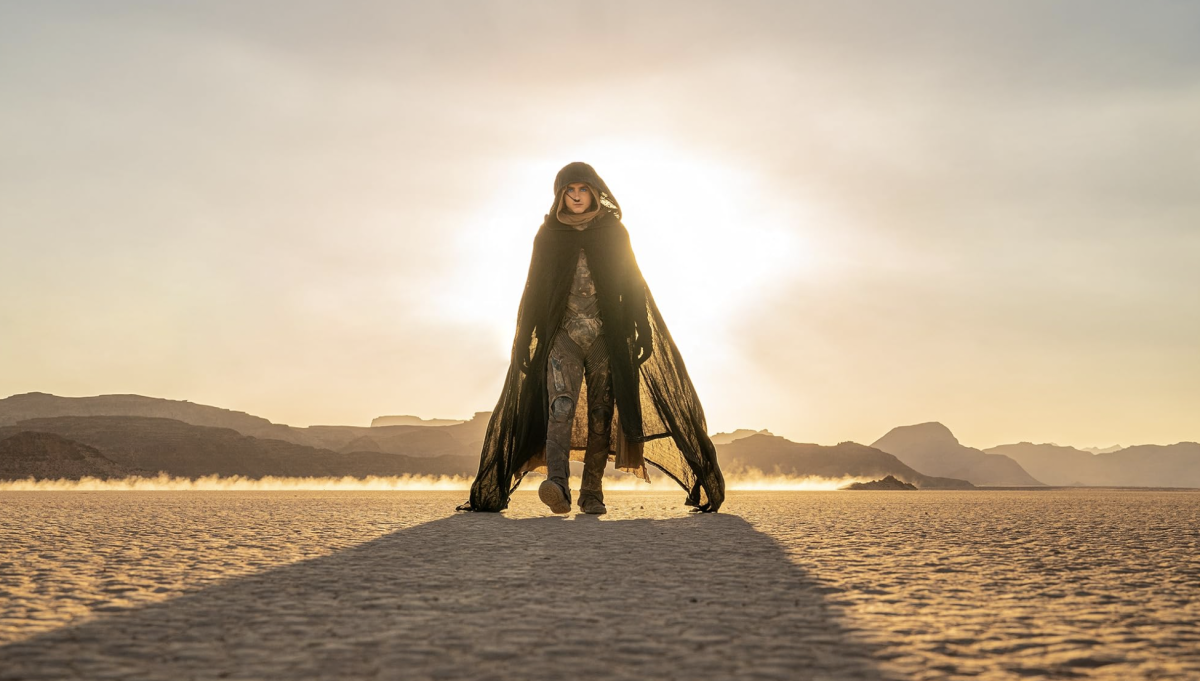It’s a cold night in Amherst, but not cold enough to keep people from showing up in leather jackets and wool beanies. There’s a bustle slowly beginning downtown. On the outside, it looks like a typical weekend night for The Drake. But tonight, there are people outside looking to buy a ticket to the night’s show – seemingly unable to land a ticket for the night. Blue house lights adorn indie rocker Squirrel Flower in her set, signaling the wonder to those on the outside trying to peek inside.
On this Saturday night, stage lights cut through Bruce Springsteen’s “Tougher Than the Rest” to reveal an artist inspired by his work. Squirrel Flower – also known as Ella O’Connor Williams — arrives before the lights can capture her, commanding attention with the opening vocals of “I don’t use a trash can.” The crowd dedicatedly turns to meet the beginning of the set.
The cold in Amherst is not something Squirrel Flower is unaccustomed to. Originally from Massachusetts, O’Connor Williams went to college in Iowa and eventually settled in Chicago. The places she lived became background settings to some of her music, such as “Iowa 146.”
It’s an attribute that her two openers can understand: Lily Seabird and Greg Mendez opened the show. Seabird’s instrumental breakdown is heavy with drums and guitar. It reverberates through the room setting the musical tone of the night. Greg Mendez, who made one of Pitchfork’s Best of 2023 lists, played on a stage soaked in red – recalling the statement red on his self-titled album. It’s a quieter set reminiscent of soft rock notes.
It’s the last night of the tour. In referencing this she says, “So we’re going crazy…crazy in Amherst, Massachusetts.” What follows are impassioned instrumentals and vocals igniting the night. The drums on the opening song “Full Time Job” pulsate through the room, echoing the core of the song. A live set truly gives Squirrel Flower the space to amplify her instrumentals. The stage becomes a place to turn performance into a visceral experience of her music, driving the emotions of the performed songs.
Though from different albums, “Full Time Job” and “Intheskatepark” are patched together to form a seamless transition. It’s a significant attribute throughout the concert, shifting the dynamics of a passive listening experience into attentive engagement. The way her music is woven on an album are given poignancy in a live performance.
Her songwriting structure often carries lyrical repetitions. Similar to modern indie songwriting trends, Squirrel Flower has minimal or repeated lyrics that hold different meanings, with amplified vocal tones and instrumentation building an emotional landscape. In listening to Squirrel Flower, it sounds like the singer is aiming for an emphasis she wants her listeners to pay attention to. On the stage, these repetitions sound augmented to communicate the changing meanings that occur throughout her songs.
There’s a new understanding gained from a live set, showcasing why listening to Squirrel Flower goes hand in hand with seeing her live. Her performance aids in the uncovering of what may be lying beneath a song.
“Tomorrow’s Fire,” the toured album, is a contemplative record exploring a disillusionment with life as we’ve chosen to live it. Where she finds nothing too grand or miniscule to be narrated into song, every track must be performed live in its unique essence. Though the synchronized guitars and drums create a visceral effect of headbanging, Squirrel Flower still draws back her audience to entertain the multiplicity of the worlds her songs inhabit. The contemplative nature of “What Kind of Dream Is This?” which follows a confused narrator within a disoriented gaze, is recreated live with dreamy guitars. The Drake moves into an unsettled sway – holding the lyrics in line with melody.
What’s striking about Squirrel Flower is that when performing, she doesn’t force the emotions of her songs. The subtleties of her body language are enough to portray someone who is retelling a collection of moments. In an interview with NPR, O’Connor Williams said, “The songs I write are not always autobiographical, but they’re always true.”
She doesn’t position herself as the center of her performance but uses performing as a tool to express a sonic story. This came into play with “Streetlight Blues.” Her vocals controlled the pacing of the song as the instruments rose to meet and fall along her vocal emphases.
When Squirrel Flower ends with her cover of Caroline Polachek’s “So Hot You’re Hurting My Feelings,” the choice seems poignant. After a set of playing music from different periods of her career, you get a full arch of her music so far. The cover is a return to a pivotal point, a point that may have led to more people discovering her music; in the same way the end of her concert keeps you wanting to dive deeper into the spectacle that is Squirrel Flower.
Suzanne Bagia can be reached at [email protected]




















